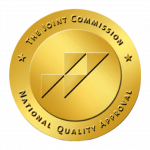As the body becomes dependent on a drug, a person cannot avoid using that substance without developing withdrawal symptoms. The degree and extent of withdrawal symptoms can differ for everyone. Factors that can affect it include the drug in question, the nature of the addiction, and the individual’s biological composition.
Any drugs’ withdrawal effects are so unpleasant or disorienting that physicians consider tapering off of them. Some drugs, on the other hand, can be left cold turkey without having any significant harmful side effects. This article would contrast going cold turkey versus tapering off drugs, as well as when each approach is more appropriate.
When Is It Appropriate to Go Cold Turkey?
When you quit cold turkey, you stop consuming a drug without any transition time or use of substitution therapy. The most significant advantage of quitting cold turkey is that it encourages the person to concentrate on sober living right away. The tapering-off procedure maintains the problem in reduced doses; still, quitting such substances cold turkey will result in life-threatening withdrawal symptoms.
Furthermore, persons who leave a drug cold turkey are at a higher risk of addiction. This is because cravings are often severe and the detox process can be painful. Marijuana and nicotine are two drugs that are safe to quit cold turkey.
Is It Better to Stop Smoking Abruptly or Gradually?
When it comes to stopping smoking, studies have shown that going cold turkey is the most powerful method. According to a survey conducted in the Annals of Internal Medicine, 49 percent of subjects who stopped smoking suddenly stayed nicotine-free one month later. 22 percent remained that way six months later. Only 39 percent of subjects who quit steadily remained smoke-free at the one-month mark, and only 15 percent at the six-month mark.
Ecstasy and LSD are two other drugs that can be left cold turkey without causing severe physical withdrawal effects. However, both drugs can trigger severe neurological withdrawal symptoms. Physicians advise only leaving with the help of healthcare providers and addiction specialists.
What Exactly Is Cold Turkey Withdrawal?
Quitting a drug cold turkey nearly invariably results in an unpleasant detox period; but, with most substances, the worst withdrawal effects usually subside after one week. As a result, certain people tend to drop such drugs prematurely. By tapering off the drug, they are simply prolonging less acute withdrawal effects for weeks or even months.
It’s important to note that quitting certain drugs cold turkey can be risky. This is particularly true if you’re not in a medical rehab center and aren’t surrounded by trained medical professionals. For certain medications, the only way to avoid taking them is to gradually taper off them.
Certain forms of withdrawal can be painful and, in some circumstances, fatal. Consider receiving withdrawal care from a medical treatment center or elsewhere with the supervision of a licensed medical practitioner. Harm Reduction Center is here for you to empower you through this journey.
What Is Taper Off and When Is It Necessary?
Before being addicted to a drug, most people grow a physical dependency on it. That is, the body becomes accustomed to life with the drug in its system. Suddenly stopping could result in a painful physical reaction as the organ systems begin to readjust to life without it. Opioids, barbiturates, benzodiazepines, and methamphetamine are also risky drugs to stop using suddenly.
And patients who take antidepressants, barbiturates, or benzodiazepines as prescribed may become addicted to them; but, they are under the supervision of a psychiatrist who can help them gradually taper off their medicine. Furthermore, according to the National Institute of Mental Health, physicians usually try to administer particularly addictive medications such as benzodiazepines for brief amounts of time to reduce the chance of developing dependency.
Opioid Replacement Therapy (ORT)
The issue with tapering off illegal drugs such as heroin and methamphetamine is that many people do so without the supervision of a doctor. If they do not eventually reduce their dosage, their bodies can go through withdrawal, prompting them to use again at their once-regular dose, placing them at risk of overdose. Since suddenly discontinuing medications such as methamphetamine will cause debilitating withdrawal effects, but tapering is not desirable, rehab centers have an alternative to tapering known as opioid replacement therapy (ORT).
ORT is close to tapering in that it continually fills the body with minimal doses of heroin-like drugs to relieve detox effects and cravings. According to the National Institute on Drug Abuse (NIDA), methadone, a slow-acting opioid agonist, is a common treatment for heroin addiction.
Doctors can taper off methadone until people who were addicted to heroin have entered a safe detox time with the aid of methadone. Individuals can taper off methadone by reducing their doses by 20-50 percent per day before they are taking 30 mg a day, according to the US Department of Veteran Affairs. Then, every 3-5 days, they can reduce the dosage by 5 mg until they are taking 10 mg a day. Finally, every 3-5 days, they can reduce the dosage by 2.5 mg.
What Effect Does Tapering Off Have On Withdrawal?
The two key goals of tapering off a drug are to reduce any unpleasant withdrawal effects and to avoid life-threatening risks. When tapering off a drug, some withdrawal symptoms can occur, although they are normally mild. The specific signs vary depending on the drug in question and the severity of the addiction. Headache and anxiety are two of the most frequent withdrawal symptoms that arise after tapering off any drug.
Addiction Treatment
According to NIDA, illicit drug use is on the rise across the world, with a reported 9.4 percent of the population over the age of 12 admitting to consuming an illegal drug during the previous 30 days in 2013. Addiction, on the other hand, is an illness, and getting help is not a sign of weakness. Tapering off medications with the supervision of a psychiatrist, as well as focusing on replacement therapy, have also been shown to be effective methods of overcoming an addiction. Cold turkey quitting succeeds for some people in some situations, but quitting in a licensed rehab clinic is the only way to go.














